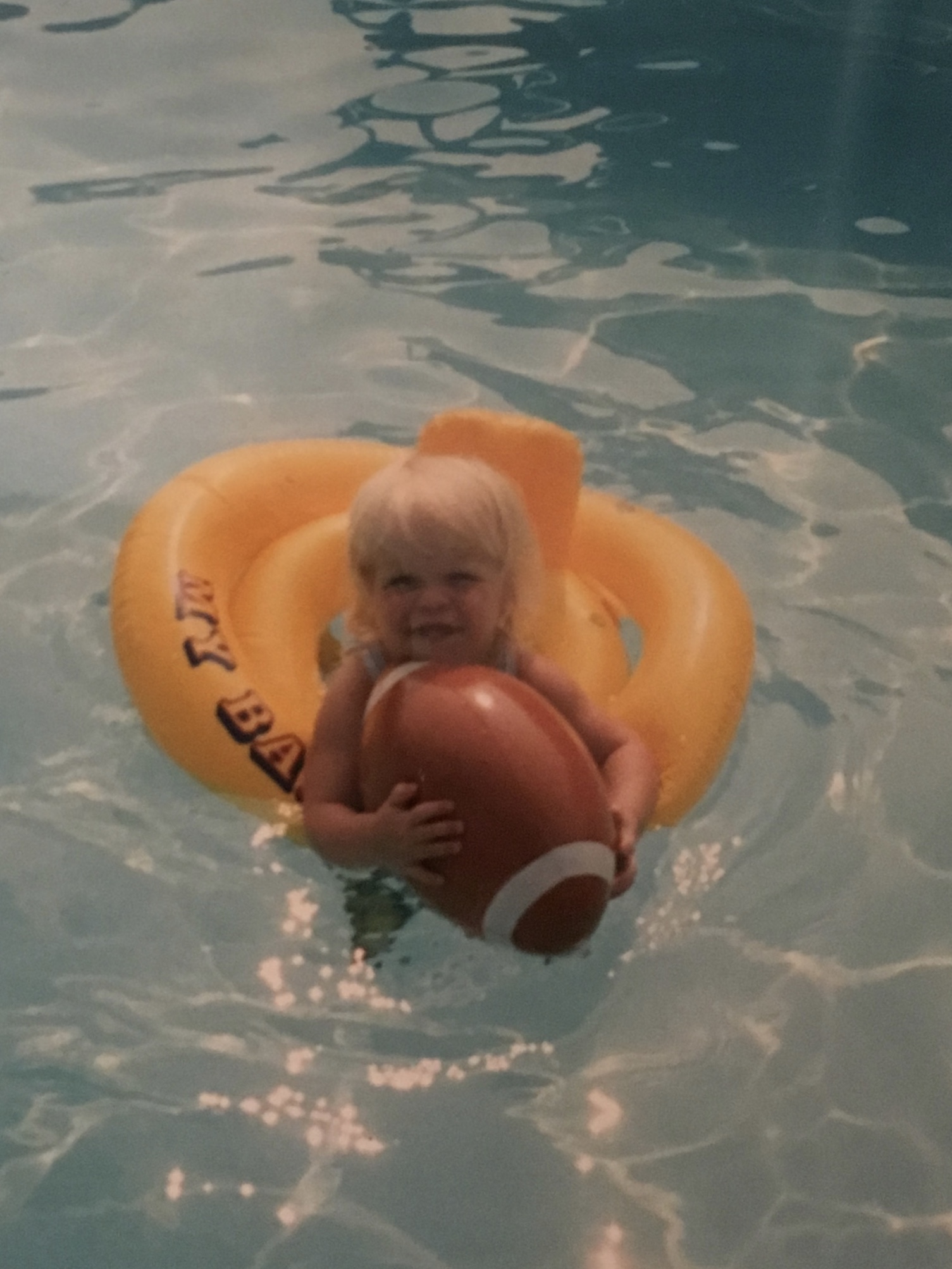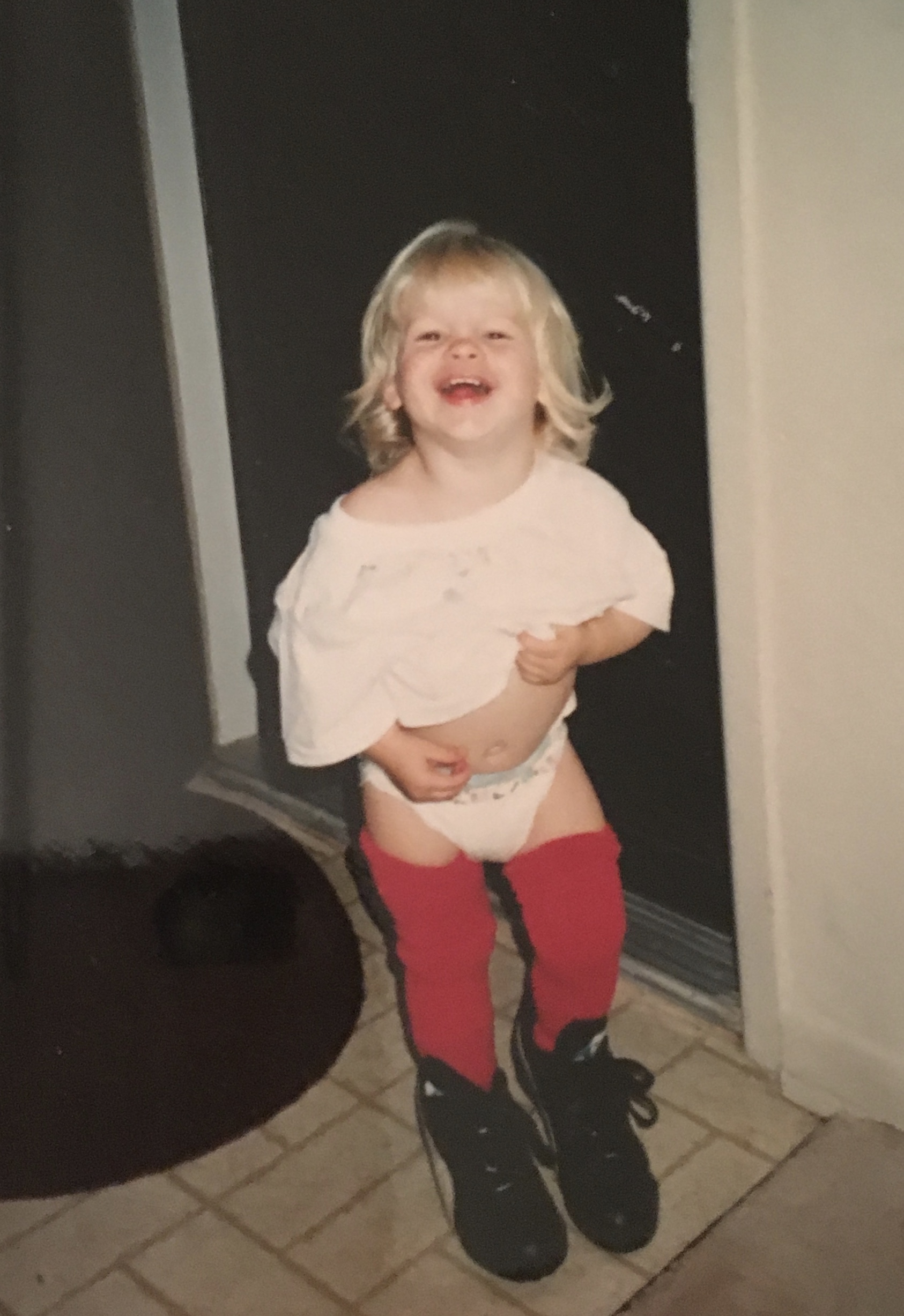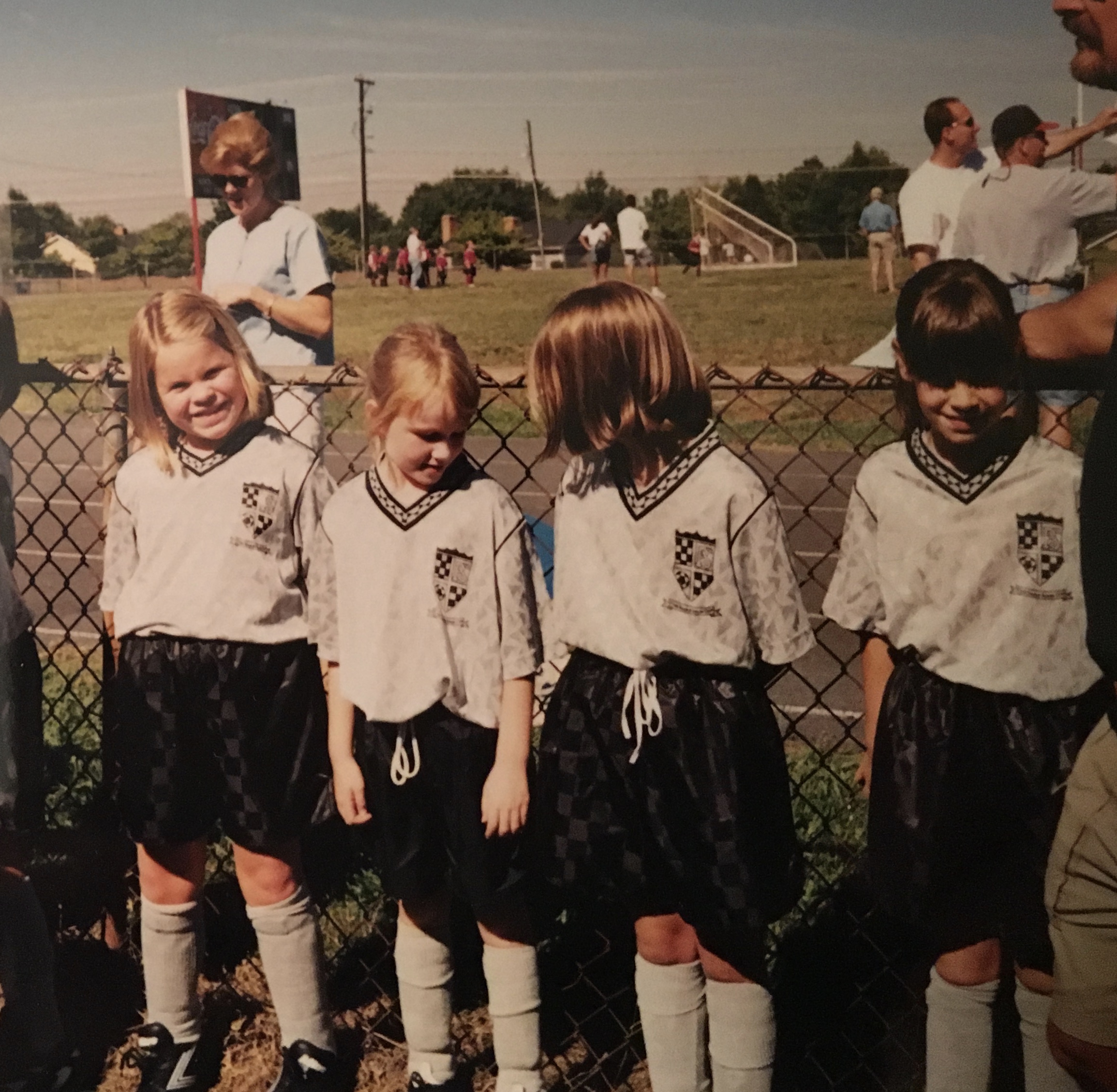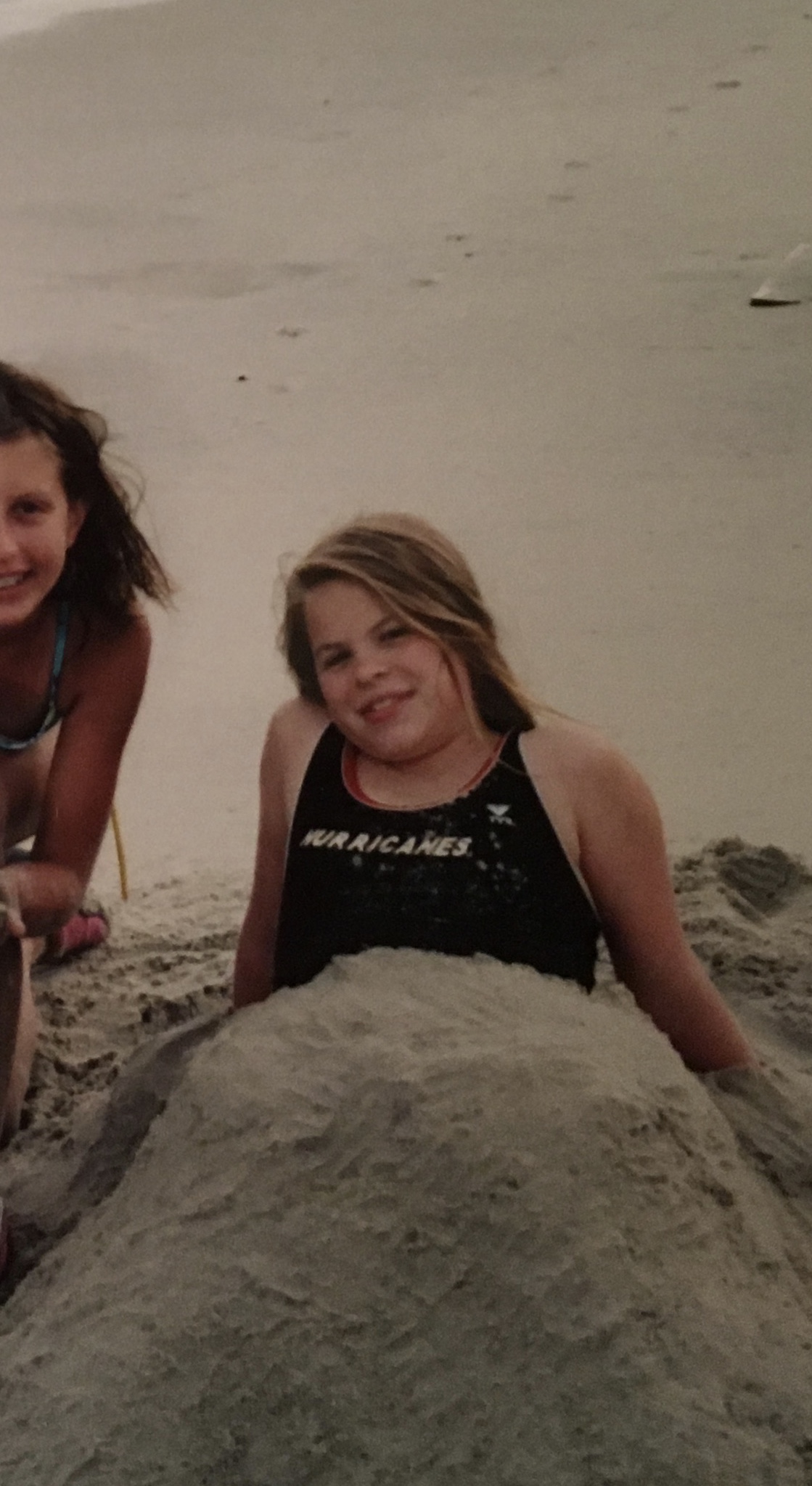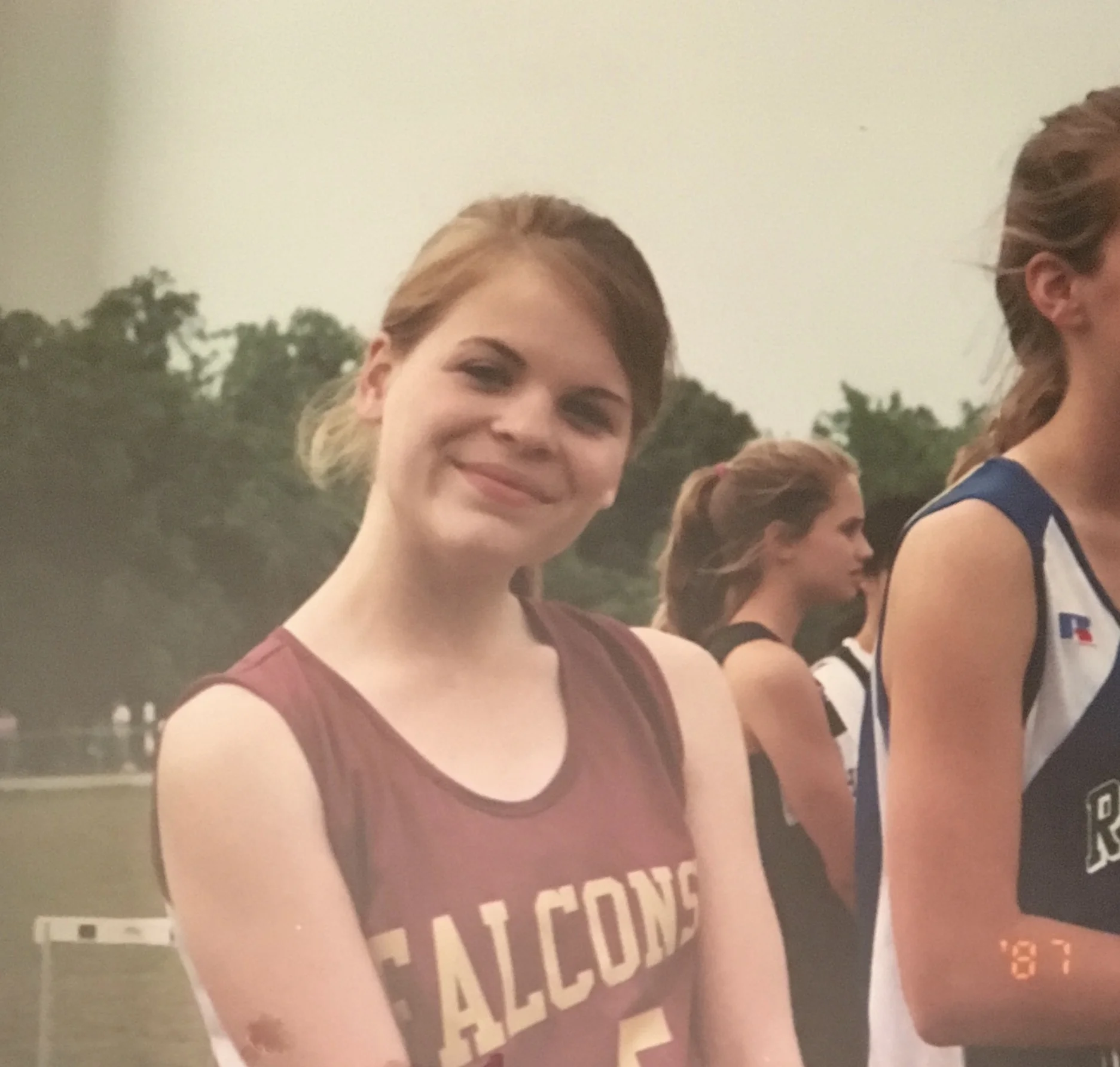“I don’t want to get bulky, I just want to tone up,” say over half of the women I ever do a fitness assessment with. Admittedly, I used to say things like this too, back in my competitive running, swimming, and group fitness days. I was a cardio queen for years; running, swimming, walking, dancing every single day, yet, I never achieved the muscular, lean body I sought…until I started picking up heavy sh*t.
Running or cycling burns approximately 10-12 calories a minute while weight lifting burns 8-10 calories a minute. So what’s the deal? Why is strength training important for weight loss if cardio, minute per minute, burns more calories than the same time spent lifting weights?
While cardio alone obviously burns calories and can help you lose and manage weight, it does very little for muscle growth aka “toning.” Traditional cardiovascular exercise (like jogging or running steadily for a certain amount of miles, taking a Zumba class, walking, etc.) may help you lose numbers on the scale but some of that weight loss is going to be muscle loss, in addition to the desired fat loss.
Why don’t we want to lose muscle?
1) Muscle burns fat because it takes more energy (calories!) to sustain muscle. The more muscle you have, the more fat you’re going to burn all day long, just by being alive. This baseline number of calories you burn in a day is called your Resting Metabolic Rate, or your RMR. As your muscle increases, so does your RMR. For every 3 pounds of muscle you have, you’ll burn an extra 120 calories a day, no extra movement necessary. That’s 10 pounds of fat in a year, without even implementing dietary changes. Yasss.
2) Muscle is denser than fat: one pound of muscle takes up 18% less physical space than fat, so you’re going to fit into clothes better. Bring on the jeans from high school!
3) This may seem self-explanatory but muscle makes daily life easier. Lots of groceries? That requires strength. Yard work? Better have some strong arms. Moving into a new place? Stronger muscles make for a quicker job. Picking up your kids? Yay muscles! Fighting off a predator? Watch out, you got some killer muscles!
Overall, strength training is going to help you lose fat AND gain muscle. Additionally, after a strength training session, your body will continue to work hard to help your muscles recover. While you lift weights you’re essentially tearing your muscles and after all that stress, your body needs extra oxygen to repair them and get back to its resting metabolic rate. This is what we call excess post-oxygen consumption, or EPOC (I’ve also heard it called the “Afterburn Effect”). In some instances, EPOC can continue up to 36-48 hours after a bout of strength training. AYO. Burn, baby, burn.
What about the bulk?
Technically, weightlifting can make you appear bulky, given you:
1) Are eating in a caloric surplus
2) Are training in a certain rep range for muscle growth
3) Have enough testosterone, the primary male sex hormone and an anabolic (molecule building) steroid.
If you’re eating more calories than you burn in a day, have enough testosterone, and are training for hypertrophy/strength gains, yeah, you might start looking Hulk-ish. Ladies, rest assured in knowing that most women who actually want to look “bulky” (i.e. bodybuilders) have to work incredibly hard and eat like linebackers to put on that size. If you’re completely new to strength training and don’t go ham in the kitchen, you’re going to lean out in ways you’ve never been able to before, guaranteed.
HITT
My fellow cardio lovers don’t fret! HIIT or high-intensity interval training is also an amazing way to get your cardio fix while retaining (or even gaining) muscle.
HIIT (or sprint interval training, SIT) is cardiovascular exercise that utilizes intervals - alternating short periods of hard AF, anaerobic exercise with less intense recovery periods. In the intense period of the interval, you should be working at 80-95% of your max heart rate, basically giving all-out effort. For the recovery duration, heart rate should drop to 60-65% of your max heart rate. These actual numbers and intensities are going to vary according to your fitness level.
What does that look like?
Though there’s no fixed formula for HIIT, there are common versions such as a 2:1 ratio of work to recovery (i.e. 40 second all-out sprint, 20 second jogging or walking) repeated until failure, or until you need to end the session! This is similar to a HIIT protocol you may be familiar with: Tabata. The traditional Tabata workout is only FOUR minutes: 20 seconds of hard work, 10 seconds of rest, 8 rounds.
Tabata training was first compared to moderate intensity cardio by Dr. Izumi Tabata and a group of researchers in Tokyo. The athletes in the moderate-intensity group performed one hour workouts, 5x a week, for 6 weeks. The athletes performing the Tabata exercises did four minute and 20 second workouts, 4x a week, for 6 weeks. After the experiment, the group doing Tabata showed significant improvement in both their aerobic and anaerobic systems, whereas the moderate-intensity group didn’t improve in their anaerobic performance.
Thus, HIIT is an amazing way to burn fat, improve cardiovascular capacity, and, unlike moderate intensity cardio, does elicit that EPOC we were talking about, though it won’t last for as long as your strength training EPOC will. Do take note that the intense nature of HIIT can be incredibly taxing on the body and it’s recommended that you don’t do it more than twice a week or you’re going to risk injury and/or raised cortisol (stress hormone) levels, which just wreaks havoc on your entire system.
The bottom line:
Strength training and HIIT are the most effective ways to lose body fat and get lean. Moderate cardio is still a great way to get those feel-good endorphins, maintain weight, and improve your heart health (I usually do one long run or dance class a week), but should not be your sole exercise strategy if you’re aiming to improve your body composition.
Need workout inspiration? Try this killa full-body workout or this Tabata routine to get you started. Let’s get it!






